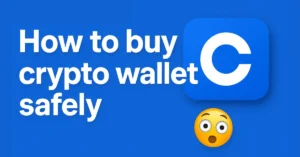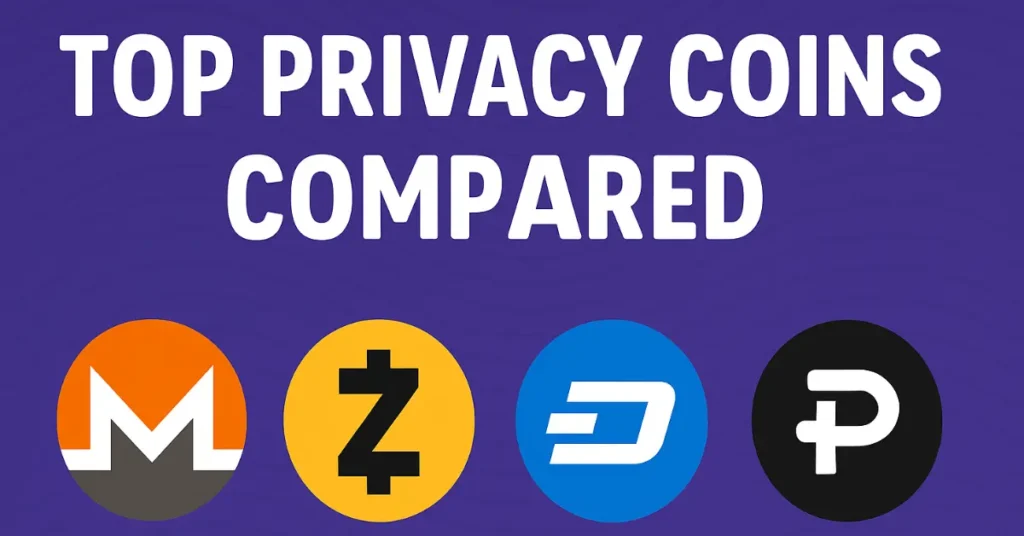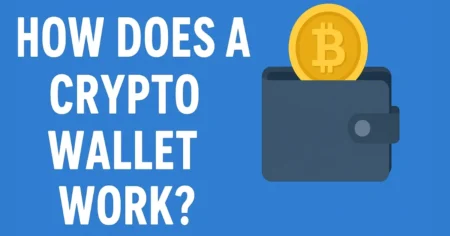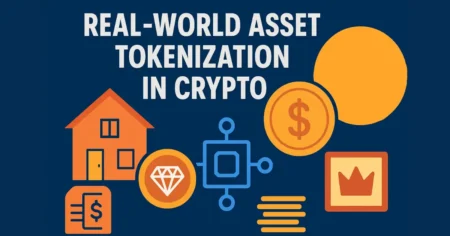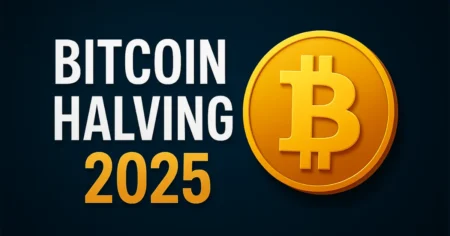Top Privacy Coins Compared Report
Introduction to Privacy Coins
The cryptocurrency industry was built on the promise of decentralization and financial freedom. Bitcoin, the first cryptocurrency, was often described as anonymous money. However, as blockchain technology matured, it became clear that Bitcoin is not anonymous—it is pseudonymous. Every Bitcoin transaction is recorded on a public ledger that anyone can access. This means your financial activity can be tracked, analyzed, and even linked to your identity if someone connects your wallet address to personal information.
This gap between perception and reality gave rise to privacy coins—cryptocurrencies specifically designed to protect the privacy of users. These digital assets go beyond Bitcoin’s limited pseudonymity and employ advanced cryptographic techniques to hide transaction details such as the sender, receiver, and amount. For many, privacy coins are not about hiding criminal activity but about preserving financial sovereignty in a world of increasing surveillance.
In recent years, interest in privacy coins has grown significantly, especially as discussions around digital identity, government surveillance, and central bank digital currencies (CBDCs) intensify. People want alternatives that allow them to transact without leaving a permanent trace. This article will provide a comprehensive comparison of the top privacy coins, exploring their technology, adoption, strengths, and weaknesses, so you can better understand where each one stands in today’s evolving crypto ecosystem.
The Importance of Privacy in the Crypto World
Financial privacy is not just a buzzword; it is a necessity in the digital age. Consider how often your financial transactions reveal personal details about your lifestyle, habits, and choices. From the stores you shop at to the charities you donate to, your spending creates a digital footprint that corporations, governments, and malicious actors can analyze.
On traditional blockchains like Bitcoin and Ethereum, every transaction is permanently visible. For businesses, this can expose trade secrets and supplier information. For individuals, it can expose salaries, investments, and even personal relationships. Imagine paying for medical treatment, making a political donation, or sending money to a family member abroad—all while knowing that strangers could see the details.
Privacy coins address this concern by ensuring that transactions remain confidential. For many advocates, this is not about breaking laws but about defending a fundamental human right: the right to privacy. Just as people lock their doors at home and seal letters in envelopes, they deserve privacy when moving their money online.
In the United States, where financial institutions are increasingly obligated to share transaction data with regulators, privacy coins offer a counterbalance. They allow individuals to reclaim financial independence in an era where cash is disappearing and digital transactions dominate.
Of course, privacy coins also face criticism. Some argue that their anonymity features make them attractive for illegal use, such as money laundering or black-market transactions. While this concern is valid, it overlooks the fact that most privacy coin users simply want protection from surveillance capitalism and data exploitation. After all, just because privacy tools can be abused doesn’t mean they are inherently bad—much like how encrypted messaging apps are used by both journalists and criminals.
How Privacy Coins Work
Privacy coins achieve their anonymity through advanced cryptographic techniques that go far beyond what Bitcoin or Ethereum currently offer. To understand how they work, let’s break down some of the most popular technologies:
- Ring Signatures: Used in Monero, this technique allows a transaction to be signed by a group of possible signers without revealing which one is the real sender. It’s like being in a crowd and shouting, but no one can tell who’s speaking.
- Stealth Addresses: These create a one-time use address for every transaction, making it impossible to link multiple transactions to the same recipient.
- zk-SNARKs (Zero-Knowledge Succinct Non-Interactive Arguments of Knowledge): Used in Zcash, zk-SNARKs let someone prove that a transaction is valid without revealing the sender, recipient, or amount. Imagine proving you know the answer to a question without actually saying the answer out loud.
- Coin Mixing (PrivateSend, CoinJoin): Some coins use transaction mixing, where multiple transactions are bundled together to obscure the origin of funds.
Each privacy coin implements these methods differently, striking a balance between privacy, usability, and scalability. For instance, Monero enforces privacy by default, while Zcash offers optional privacy settings. Pirate Chain takes things even further by making every transaction private by default, leaving no room for traceability.
Understanding these technologies is key to comparing privacy coins because each method comes with its own strengths, trade-offs, and vulnerabilities. Some are better for strong anonymity, while others prioritize speed and scalability.
Top Privacy Coins Compared Report – Overview
Before diving into individual coins, it’s important to understand why comparing privacy coins matters. The market is filled with projects that claim to offer anonymity, but not all of them deliver the same level of privacy or long-term sustainability. Some privacy coins have gained massive adoption, while others remain niche players.
When evaluating privacy coins, this report will look at the following criteria:
- Technology – How effective and reliable are the privacy features?
- Adoption & Community – How widely used is the coin, and how strong is its support base?
- Regulatory Challenges – How is the coin viewed by governments and exchanges?
- Security & Network Strength – How resistant is it to attacks?
- Usability – Are transactions fast, cheap, and practical?
This structured comparison will help readers determine which privacy coin best suits their needs—whether for personal use, investment, or as part of a broader crypto portfolio.
Monero (XMR): The King of Privacy Coins
When people think of privacy coins, Monero (XMR) is usually the first name that comes to mind. Launched in 2014, Monero has built a reputation as the most trusted and widely adopted privacy coin. Unlike Bitcoin, where transactions are traceable, Monero uses a combination of Ring Signatures, RingCT (Ring Confidential Transactions), and Stealth Addresses to make every transaction completely private by default.
Monero’s biggest strength is that privacy is not optional—it is mandatory. This means all transactions on the Monero network are shielded, ensuring a consistent level of anonymity. While Zcash, for example, allows users to choose between transparent and private transactions, Monero eliminates this choice entirely. For many privacy advocates, this makes Monero the gold standard.
The Monero community is another strength. It has one of the most active open-source developer communities in the crypto space, continuously improving the coin’s technology. Adoption is also significant: Monero is accepted by various merchants, used in darknet markets (which unfortunately gives it a bad reputation), and supported by privacy-focused wallets.
However, Monero is not without challenges. Its privacy-focused design makes it a target for regulators, and several major exchanges have delisted it. Additionally, Monero transactions are heavier in terms of data, making scalability a constant issue. Mining Monero is still possible with consumer-grade CPUs, which decentralizes the network but raises questions about efficiency compared to proof-of-stake models.
Despite these challenges, Monero remains the undisputed leader in privacy coins, and many believe it will continue to dominate the space as long as financial privacy remains a global concern.
Zcash (ZEC): Zero-Knowledge Proof Pioneer
Zcash is one of the most groundbreaking privacy coins because it introduced a powerful cryptographic technology called zk-SNARKs (Zero-Knowledge Succinct Non-Interactive Arguments of Knowledge). Launched in 2016, Zcash aimed to provide users with the best of both worlds: the transparency of Bitcoin and the privacy of advanced cryptography.
Unlike Monero, where every transaction is private by default, Zcash allows users to choose between transparent transactions (similar to Bitcoin) and shielded transactions (protected by zk-SNARKs). This optional privacy has been a double-edged sword. On one hand, it makes Zcash more regulatory-friendly since exchanges and institutions can still verify transparent transactions. On the other hand, it has limited adoption of the shielded feature—many users continue to use Zcash transparently, which defeats its purpose as a privacy coin.
The strength of Zcash lies in its advanced cryptography. zk-SNARKs allow users to prove that a transaction is valid without revealing any details about it. Think of it as proving you’ve solved a puzzle without showing anyone how you did it. This ensures that funds are not being double-spent while maintaining full privacy for the sender, recipient, and transaction amount.
However, zk-SNARKs are computationally intensive, meaning transactions can be slower and require more resources compared to Monero. Another challenge is that many wallets and exchanges don’t fully support shielded transactions, reducing real-world usability.
Still, Zcash is backed by the Electric Coin Company and the Zcash Foundation, both of which continue to innovate. The project has undergone upgrades like Halo, which aims to remove the need for trusted setups in zk-SNARKs, making the system even more secure and scalable.
For users who want a balance between compliance and privacy, Zcash is an appealing option. It is also a favorite among investors who see zk-SNARKs as a revolutionary technology that could extend beyond Zcash into wider applications across blockchain networks.
Dash (DASH): PrivateSend Transactions
Dash, short for “Digital Cash,” began as a Bitcoin fork in 2014. While it is often marketed as a payments-focused cryptocurrency, Dash also offers privacy features through its PrivateSend function. Unlike Monero or Zcash, Dash does not make privacy a core, default feature. Instead, it provides an optional layer of anonymity for users who want it.
PrivateSend works through coin mixing, a method where multiple users’ transactions are combined, making it difficult to trace the source of funds. This is achieved using a protocol similar to CoinJoin, which shuffles coins before sending them to their final destination. The result is that transactions become harder to track, although they are not as private as Monero’s or Zcash’s cryptographic methods.
The advantage of Dash is its speed and usability. Dash was one of the first cryptocurrencies to introduce InstantSend, allowing transactions to confirm in seconds, making it ideal for point-of-sale payments. It is also widely adopted, with merchants around the world accepting Dash as a form of payment. In countries like Venezuela, Dash has been promoted as an alternative to unstable local currencies.
However, Dash has faced controversy over its privacy claims. Critics argue that its privacy features are limited compared to dedicated privacy coins like Monero and Zcash. Additionally, because privacy is optional and not enforced by default, Dash is often not considered a “true privacy coin” by purists.
Still, Dash has carved out a unique niche as a fast, user-friendly payment cryptocurrency with optional privacy features. For those who value usability over maximum anonymity, Dash remains a solid choice.
Pirate Chain (ARRR): Hardcore Privacy Approach
If Monero is known for default privacy and Zcash for optional privacy, then Pirate Chain (ARRR) takes privacy to the absolute extreme. Launched in 2018, Pirate Chain enforces mandatory private transactions using zk-SNARKs technology. Unlike Zcash, which allows users to choose transparency, Pirate Chain eliminates this choice entirely. Every single transaction on the network is private—no exceptions.
This hardcore approach has earned Pirate Chain a loyal following among privacy advocates who believe that optional privacy is not true privacy. By making privacy non-negotiable, Pirate Chain ensures a uniform anonymity set, meaning every user enjoys the same level of protection.
From a technical standpoint, Pirate Chain is built on the Komodo platform and uses zk-SNARKs for transaction shielding. This makes it extremely difficult, if not impossible, to trace transactions. However, this also makes it regulator-unfriendly, and Pirate Chain faces significant hurdles in adoption. Many exchanges are hesitant to list ARRR due to regulatory pressure against fully anonymous cryptocurrencies.
Despite these challenges, Pirate Chain has gained popularity among those who prioritize maximum financial sovereignty. It appeals to users who don’t want to take risks with partial privacy and are willing to accept the trade-offs of lower liquidity and limited adoption.
On the downside, Pirate Chain’s ecosystem is relatively small, and its real-world use cases remain limited. Without wider merchant support and user adoption, ARRR may struggle to compete with larger players like Monero and Zcash.
Still, for those who believe in uncompromising privacy, Pirate Chain represents one of the most hardcore options available in the crypto world.
Verge (XVG): IP Address Anonymity
Verge stands out from other privacy coins because it focuses not just on transaction anonymity but also on network-level privacy. Launched in 2014 under the name DogeCoinDark (later rebranded to Verge), this coin integrates TOR (The Onion Router) and I2P (Invisible Internet Project) to hide users’ IP addresses when they send transactions.
Unlike Monero or Zcash, which use cryptographic methods to hide transaction details, Verge focuses on ensuring that transactions cannot be traced back to a user’s IP address. This provides an extra layer of anonymity because even if transactions were somehow analyzed, linking them to a physical person becomes much harder without IP data.
One of Verge’s biggest strengths is its speed and low fees. It is designed to handle fast transactions, making it practical for daily use. Verge has also been integrated into payment gateways, and at one point, it gained significant attention when the adult entertainment industry (including Pornhub) announced it would accept Verge as payment.
However, Verge has faced criticism for security vulnerabilities. Over the years, it has been targeted by several 51% attacks, which damaged its reputation. Critics also argue that its privacy features are weaker compared to cryptography-heavy privacy coins like Monero and Zcash. Hiding IP addresses is valuable, but it doesn’t provide the same level of transaction anonymity.
Despite its flaws, Verge has managed to build a strong community. It appeals to users who value network-level privacy and want a lightweight, fast cryptocurrency for everyday use. While it may not be the most secure option, Verge continues to hold relevance as a privacy-focused payment coin.
Horizen (ZEN): Privacy and Scalability
Horizen, formerly known as ZenCash, takes a broader approach to privacy by combining zk-SNARKs with a scalable sidechain architecture. Launched in 2017, Horizen is not just a privacy coin—it’s an entire privacy platform designed to support decentralized applications, sidechains, and secure communication tools.
The core privacy feature of Horizen lies in its optional shielded transactions powered by zk-SNARKs, similar to Zcash. However, what sets Horizen apart is its focus on scalability and utility beyond payments. The Horizen ecosystem includes sidechains that allow developers to build decentralized apps (dApps) with privacy features, making it more than just a currency.
Horizen also emphasizes decentralized governance and community participation. It boasts one of the largest node networks in the blockchain industry, with over 40,000 nodes. This makes it highly decentralized and resistant to attacks.
One of Horizen’s key innovations is Zendoo, a sidechain protocol that lets developers create custom blockchains linked to the Horizen network. This means businesses and projects can benefit from the privacy of zk-SNARKs while tailoring their blockchain to their specific needs.
On the downside, Horizen’s complexity can be a barrier to adoption. It is not as simple to use as Monero or Dash for everyday transactions. Its focus on infrastructure and scalability means that it is often viewed as a long-term project rather than a day-to-day privacy coin.
Still, Horizen is attractive to those who want more than just private payments. It positions itself as a privacy-focused blockchain ecosystem, combining financial privacy with tools for building decentralized, censorship-resistant applications.
Comparison Table: Privacy Coins at a Glance
To better understand how each privacy coin stacks up, it’s helpful to compare them across key factors like privacy strength, transaction speed, scalability, adoption, and regulatory risk. Below is a simplified comparison table that summarizes the strengths and weaknesses of the leading privacy coins:
| Privacy Coin | Privacy Method | Privacy by Default | Speed | Adoption Level | Regulatory Risk | Key Strength | Key Weakness |
|---|---|---|---|---|---|---|---|
| Monero (XMR) | Ring Signatures, RingCT, Stealth Addresses | Yes | Moderate | High | Very High | Strongest privacy | Regulatory pressure, scalability issues |
| Zcash (ZEC) | zk-SNARKs | Optional | Moderate | Medium | High | Advanced cryptography | Limited shielded adoption |
| Dash (DASH) | Coin Mixing (PrivateSend) | Optional | Fast | High | Medium | Speed & usability | Weak privacy compared to others |
| Pirate Chain (ARRR) | zk-SNARKs (Mandatory) | Yes | Slow | Low | Very High | Hardcore privacy | Low adoption, exchange support issues |
| Verge (XVG) | TOR + I2P (IP Anonymity) | Yes (network-level) | Fast | Medium | Medium | Network anonymity | Vulnerable to attacks |
| Horizen (ZEN) | zk-SNARKs + Sidechains | Optional | Moderate | Medium | Medium | Privacy + scalability | Complexity, slower adoption |
This comparison highlights a key trade-off: the more private a coin is, the higher its regulatory risks and the more difficult it may be for mainstream adoption. Coins like Monero and Pirate Chain maximize privacy but face delistings and legal scrutiny, while coins like Dash and Zcash strike a balance with optional privacy features.
For users, the best choice depends on priorities:
- If you want absolute anonymity, Monero or Pirate Chain may be best.
- If you want compliance-friendly privacy, Zcash and Horizen provide flexibility.
- If you value speed and usability, Dash or Verge could be more practical.
Regulatory Challenges for Privacy Coins
One of the biggest hurdles facing privacy coins is regulation. Governments worldwide, including in the United States, are wary of cryptocurrencies that make it nearly impossible to trace transactions. Regulatory agencies argue that privacy coins can be used for money laundering, terrorism financing, and tax evasion, making them a threat to financial oversight systems.
As a result, many exchanges—especially regulated ones in the US, Europe, and Asia—have delisted privacy coins like Monero, Zcash, and Dash. For instance, in 2021, major exchanges such as Bittrex and ShapeShift removed Monero and Zcash due to compliance concerns. Similarly, South Korea outright banned trading of privacy coins on exchanges.
The regulatory climate is especially important in the US, where agencies like the Financial Crimes Enforcement Network (FinCEN) and the Securities and Exchange Commission (SEC) keep a close eye on crypto markets. While Bitcoin and Ethereum have found ways to exist within regulatory frameworks, privacy coins remain a gray area.
The irony, however, is that privacy is not illegal. Just as people have the right to use encryption in emails or messaging apps, they should also have the right to use financial privacy tools. Advocates argue that banning privacy coins is like banning locks on doors—it doesn’t stop crime but only makes ordinary people more vulnerable.
Still, the future of privacy coins in regulated markets remains uncertain. They may either evolve to include optional transparency for compliance purposes, or they may remain niche tools used by those willing to trade convenience for privacy.
Risks and Concerns with Privacy Coins
While privacy coins offer undeniable benefits, they also come with risks that potential users and investors should carefully consider:
- Regulatory Pressure – As discussed, privacy coins face significant legal scrutiny. This makes them harder to trade, limits liquidity, and may reduce their long-term adoption.
- Association with Illicit Activity – Privacy coins are sometimes linked to darknet markets and criminal activity. While this is not representative of most users, it does harm their public image.
- Liquidity Issues – Compared to Bitcoin and Ethereum, privacy coins have lower liquidity, making them harder to buy, sell, or convert at scale.
- Technical Complexity – Some privacy features, like zk-SNARKs, are difficult for non-technical users to understand. This can limit mainstream adoption.
- Network Vulnerabilities – As seen with Verge, some privacy coins have suffered from 51% attacks or other weaknesses that compromise security.
Despite these risks, it’s worth remembering that every financial tool carries downsides. Just as credit cards, PayPal, and even Bitcoin can be exploited for fraud, privacy coins can be abused too. The key difference is that privacy coins also provide vital protections for law-abiding users who simply want financial confidentiality.
For investors, the risks also translate into market volatility. Privacy coins often experience dramatic price swings when regulatory news breaks. This makes them riskier than mainstream cryptos but also potentially rewarding for those who believe privacy will become a more valued commodity in the future.
Investment Perspective: Should You Buy Privacy Coins?
From an investment standpoint, privacy coins are a high-risk, high-reward category within the cryptocurrency market. While Bitcoin and Ethereum dominate the sector, privacy coins have carved out a niche that may grow as digital surveillance expands.
Reasons to consider investing in privacy coins:
- Rising Demand for Privacy – As governments and corporations track more digital activity, individuals may increasingly turn to privacy-focused tools.
- Unique Technology – Innovations like zk-SNARKs and ring signatures have broader applications, meaning these coins could influence the future of blockchain security.
- Diversification – Holding a small percentage of privacy coins in a crypto portfolio can provide exposure to a niche but potentially growing sector.
Risks of investing in privacy coins:
- Regulatory Threats – Governments could outright ban or heavily restrict privacy coins, which would impact their value.
- Delisting from Exchanges – Reduced accessibility could lower liquidity and trading volumes.
- Volatility – Privacy coins often swing in price more than mainstream cryptocurrencies, making them less stable investments.
The bottom line: Privacy coins should be seen as a speculative investment rather than a safe bet. For US investors, it may be wise to treat them as a small allocation within a larger crypto portfolio—enough to benefit from potential upside without overexposing yourself to risk.
Future of Privacy Coins in a Transparent Blockchain World
The question many are asking is: Do privacy coins have a future in a world moving toward transparency? Governments and institutions are building frameworks for blockchain adoption, and most favor transparency for compliance. Central Bank Digital Currencies (CBDCs), for example, will likely allow authorities to monitor every transaction.
Yet, this trend toward surveillance may ironically increase demand for privacy coins. As people realize that CBDCs give governments unprecedented control, they may seek out alternatives that preserve financial freedom. Privacy coins could become the digital equivalent of cash—a way to transact privately in a cashless society.
Moreover, privacy coins are likely to play a role in DeFi (Decentralized Finance) and Web3 applications. Imagine borrowing, lending, or trading on decentralized platforms without exposing your entire financial history. Privacy protocols will be crucial to making DeFi sustainable and secure.
That said, privacy coins will need to adapt to regulatory realities. Hybrid models like Zcash and Horizen, which allow optional transparency, may find better adoption in mainstream finance. Monero and Pirate Chain may remain niche tools for hardcore privacy advocates but could still thrive in parallel economies.
Ultimately, the future of privacy coins depends on the balance between freedom and regulation. If people value privacy as much as they value freedom of speech, privacy coins will not only survive but may become essential in the digital economy.
Conclusion
Privacy coins represent one of the most controversial yet essential sectors of the cryptocurrency world. While Bitcoin and Ethereum brought decentralization and digital payments into the spotlight, they also exposed the limits of financial privacy. Every transaction on a public blockchain is visible, which undermines one of the core promises of digital freedom. Privacy coins emerged to fill this gap, giving users the ability to protect their financial activities from prying eyes.
From Monero’s ring signatures to Zcash’s zk-SNARKs and Pirate Chain’s uncompromising privacy-first model, these projects all take different approaches to the same problem: ensuring confidentiality in digital transactions. Meanwhile, coins like Dash and Verge focus on usability and network anonymity, while Horizen expands the vision beyond payments to privacy-enabled ecosystems.
However, privacy coins sit at the crossroads of innovation and regulation. Governments view them as threats to anti-money-laundering (AML) compliance, leading to delistings and bans in some jurisdictions. At the same time, their users see them as essential tools for defending individual rights in an increasingly surveilled and cashless economy.
For investors and users alike, the decision to embrace privacy coins depends on priorities:
- If your goal is absolute anonymity, Monero and Pirate Chain lead the way.
- If you want balance with compliance, Zcash and Horizen provide flexibility.
- If you prioritize speed and payments, Dash and Verge may be more practical.
The future of privacy coins will depend on whether society values privacy as a fundamental right. Just as encrypted messaging apps like Signal and ProtonMail found adoption despite resistance, privacy coins may find their place in a world dominated by surveillance-driven financial systems.
In short, privacy coins are not going away—they may evolve, adapt, or remain niche, but as long as people value financial freedom, they will remain relevant.
FAQs
Are privacy coins legal in the USA?
Yes, privacy coins are legal to own and use in the USA. However, regulatory bodies closely monitor them, and some exchanges have delisted coins like Monero and Zcash due to compliance concerns. While it is legal to hold and transact in them, their use for illicit activities remains illegal.
Which privacy coin is the most secure?
Monero is widely considered the most secure privacy coin because privacy is enforced by default across all transactions. Pirate Chain also offers strong security by making every transaction private, but Monero has broader adoption and stronger network resilience.
Can privacy coins be traced?
It depends on the coin. Coins like Monero and Pirate Chain are extremely difficult to trace because of ring signatures, stealth addresses, and zk-SNARKs. However, coins like Dash and Verge offer weaker privacy features, making them more susceptible to analysis. Law enforcement agencies may attempt blockchain analysis, but true privacy coins remain resistant.
What is the difference between Monero and Zcash?
Monero enforces privacy by default, ensuring all transactions are private. Zcash, on the other hand, allows users to choose between transparent and shielded transactions. This makes Monero stronger in anonymity but also more controversial with regulators. Zcash strikes a middle ground, offering flexibility but with less widespread shielded adoption.
Will privacy coins survive regulation?
Yes, but likely in different forms. Pure privacy coins like Monero may remain niche or face restrictions, while hybrid models like Zcash and Horizen may adapt to regulatory frameworks by allowing optional transparency. The demand for privacy will ensure their survival, but their mainstream adoption depends on how global regulations evolve.
Final Thoughts
Privacy is not a crime—it is a human right. Just as people lock their doors or use encrypted messaging apps, privacy coins empower individuals to control who sees their financial activities. They are not only tools for those avoiding surveillance but also safeguards for businesses, journalists, activists, and everyday citizens who value freedom in finance.
As we move into a world of Central Bank Digital Currencies and increased financial monitoring, privacy coins may become more important than ever. Whether they thrive as mainstream assets or remain specialized tools, they stand as a reminder that in the digital age, freedom and privacy must be defended—not assumed.
Also, read
- What is a crypto wallet, and how does it work? – Coinsify
- 10 Crypto Terms Every Beginner Must Know: Coinsify
- What is blockchain technology? Complete Guide – Coinsify
- How to Buy Crypto Safely in 2025: Complete Guide – Coinsify
- Bitcoin vs Ethereum: Key Differences Explained: Complete Guide
- Ultimate Blockchain Glossary: Learn Blockchain Terms Easily
- How to Buy Bitcoin Safely (Complete Beginner’s Guide)
- Top 10 Crypto Wallets for Beginners (2025 Edition)
- What is cryptocurrency? A Beginner-Friendly Guide (2025)


